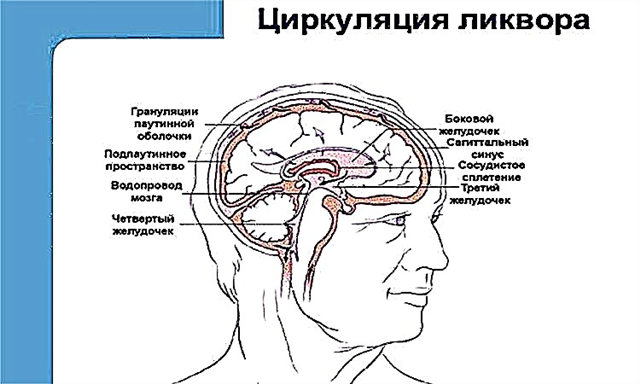Angina (tonsillitis) is the general name for a group of pathologies characterized by a predominant lesion of the palatine glands. There are several types of tonsillitis. The most common forms are lacunar and catarrhal. Follicular, phlegmonous, herpetic forms are less common. Very rarely, cases of atypical forms of tonsillitis are recorded: necrotic ulcerative, fungal, syphilitic, laryngeal. Not all types of tonsillitis inflame the glands. For example, in the laryngeal form, the lymphoid tissue of the pharynx and lymph nodules are affected. Each type of disease is dangerous with complications. Any form of pathology can be accompanied by a painful cough that persists for a long time.
Causes
Approximately 80% of all types of acute bacterial tonsillitis are caused by streptococcus, viral tonsillitis - by herpesvirus, adenovirus, enterovirus. Less commonly, the causative agent is staphylococcus and other bacteria. Very rarely, the causative agents are fungi, pale spirochete, fusiform stick. But in order for pathogenic microorganisms to become active, certain conditions are needed:
- chronic infection in the body (caries, herpes);
- hypothermia, getting wet feet;
- swimming in cold water;
- cold food, ice cream;
- irritating microparticles that enter the nasopharynx with air;
- injury to the mucous membrane of the pharynx and glands;
- chronic fatigue and stress;
- any diseases that reduce immunity.
Ways of transmission of infection: airborne (aerogenic), oral-fecal (alimentary), contact. The most common route of transmission is aerogenic.
Sore throat is highly contagious. If a patient coughs and coughs next to a healthy person who has a weakened immune system, then this is almost a 100% guarantee of infection.
It is necessary to avoid contact with infected people and strengthen the immune system.
Symptoms
The clinical picture of the disease is somewhat different, depending on the form of tonsillitis. But there are general manifestations that are characteristic of almost all species:
- rapid development of symptoms, malaise, intoxication, severe weakness, severe sore throat, aggravated by swallowing, inflammation of the lymph nodes;
- the tonsils and mucous membrane of the pharynx are hyperemic, the tonsils are edematous, sharply painful, they have a plaque of a different nature depending on the type of disease;
- muscle, head, joint pain;
- hoarseness, excessive salivation, lacrimation;
 viral sore throat is not so difficult, the temperature may not rise. Cough, runny nose, skin rash can join the main symptoms.
viral sore throat is not so difficult, the temperature may not rise. Cough, runny nose, skin rash can join the main symptoms.
Only a specialist can determine the form of angina and prescribe the correct treatment. The lack of adequate therapy at the very beginning of the disease significantly increases the risk of developing formidable complications.
Complications
Acute tonsillitis is one of the few diseases, after which a large number of complications can occur that threaten the patient's life or lead to disability.
Severe consequences:
- rheumatism;
- glomerulonephritis;
- inflammation of the brain, meningitis;
- abscesses on the tonsils, neck, brain;
- toxic shock;
- laryngeal edema;
- blood poisoning;
- septic arthritis;
- acute otitis media;
- mediastinitis;
- polyarthritis;
- bronchitis, pneumonia.
All of these conditions are a medical emergency. And some of them are urgent surgical interventions. To avoid such consequences, you need to see a doctor on time and complete the course of treatment, this is very important.
Cough with angina
As noted earlier, coughing is an optional symptom of acute tonsillitis. However, this symptom may be a manifestation of an associated secondary infection. A cough is essentially a defense reflex, a reaction of the respiratory system to irritation. Nasal discharge enters the pharynx, irritating the mucous membrane. The patient is forced to cough reflexively to remove mucus from the throat.
There are 4 types of cough: dry, wet or wet, asthmatic, spastic. The dry type is considered the most unproductive. It irritates the mucous membrane of the upper respiratory tract, exhausts the patient, takes away his strength. It is quite difficult to treat postanginal cough.
Seizures of dry spastic type are unpredictable, they can happen anywhere and anytime, even in a dream. This view may indicate the attachment of viral pharyngitis. Also, a dry paroxysmal cough after a sore throat can be a manifestation of such a complication as bronchitis. The wet type promotes mucus separation and cleansing of the nasopharynx. Coughing, a person feels a headache, chest pain, shortness of breath, palpitations, vomiting, sleep and appetite disturbances.
Diagnostics and treatment
The otolaryngologist identifies the cause of the cough reflex, whether it is a symptom of tonsillitis or a concomitant disease. The therapy regimen will depend on this. For diagnostics, the doctor uses a special mirror to examine the pharynx, visually examines the throat, takes samples and bacterial culture to identify the type of pathogen. This is necessary for the correct choice of antibacterial agent.
Only an otolaryngologist can treat a cough after a sore throat in an adult. Self-measures can aggravate the condition.
The wrong combination of drugs can cause sputum to stagnate, which in turn will lead to the development of pneumonia.
- Therapy includes the creation of certain conditions for the patient: high humidity in the room 50-70%, the optimum temperature is 18 degrees, frequent cleaning and airing of the premises, daily change of linen and towels. The patient, in turn, must comply with bed rest.
 With the cough reflex, great attention should be paid to nutrition. It is necessary to refuse food that irritates the nasopharyngeal mucosa: hot spices, marinades, sour, salty foods, seeds, chocolate, carbonated drinks, coffee, alcohol. Include low-fat broths, pureed cereals, mashed potatoes, dairy products, non-acidic jelly in the food.
With the cough reflex, great attention should be paid to nutrition. It is necessary to refuse food that irritates the nasopharyngeal mucosa: hot spices, marinades, sour, salty foods, seeds, chocolate, carbonated drinks, coffee, alcohol. Include low-fat broths, pureed cereals, mashed potatoes, dairy products, non-acidic jelly in the food.
Mashed soups, jelly, raspberry tea, milk with honey, black radish juice, onion juice are effective remedies to ease the cough reflex. Such food envelops the mucous membrane, relieves irritation, as a result of which a person coughs less. And honey, raspberries and onions also have antibacterial, anti-inflammatory, hypnotic effects. Food and drinks must not be hot or cold!
Smoking makes you cough. For the duration of treatment, you need to give up this bad habit.
- It is necessary to treat not the manifestations of the disease, but its cause. That is, the doctor prescribes drugs for sore throat and concomitant diseases. As a rule, these are antibiotics for the bacterial type of tonsillitis, antihistamines, multivitamins.
- Perfectly relieves the cough reflex by rinsing the throat with a decoction of herbs, isotonic solution, furacillin, a weak solution of manganese, irrigation of the throat with anti-inflammatory sprays, inhalation. These products are effective against bacteria.
- Symptomatic therapy is prescribed to alleviate the clinical picture: antipyretic, analgesic, vasoconstrictor drops and sprays.
- Treat coughs depending on the type of cough. With a dry type, the doctor prescribes expectorant antitussive drugs (plantain syrup, bronholitin, mucoltin, sinecod, linax, others). To relieve the cough reflex, combined drugs are prescribed (antitussive, anti-inflammatory, antibacterial, mucolytic), or a combination of drugs.
Only a specialist knows which drugs do not conflict with each other. Incompatible drugs can cause a severe allergic reaction, intoxication, anaphylactic shock.Therefore, self-administration of medications is excluded.
In addition, all of the above drugs have contraindications and side effects, which are taken into account when prescribing treatment. You need to understand that it will not be possible to get rid of the problem with folk remedies alone. The symptoms and the cause should be treated with both traditional and folk methods.
Herbs and homemade solutions also have contraindications and side effects.
In this regard, it is imperative to consult with a specialist.

 viral sore throat is not so difficult, the temperature may not rise. Cough, runny nose, skin rash can join the main symptoms.
viral sore throat is not so difficult, the temperature may not rise. Cough, runny nose, skin rash can join the main symptoms. With the cough reflex, great attention should be paid to nutrition. It is necessary to refuse food that irritates the nasopharyngeal mucosa: hot spices, marinades, sour, salty foods, seeds, chocolate, carbonated drinks, coffee, alcohol. Include low-fat broths, pureed cereals, mashed potatoes, dairy products, non-acidic jelly in the food.
With the cough reflex, great attention should be paid to nutrition. It is necessary to refuse food that irritates the nasopharyngeal mucosa: hot spices, marinades, sour, salty foods, seeds, chocolate, carbonated drinks, coffee, alcohol. Include low-fat broths, pureed cereals, mashed potatoes, dairy products, non-acidic jelly in the food.

